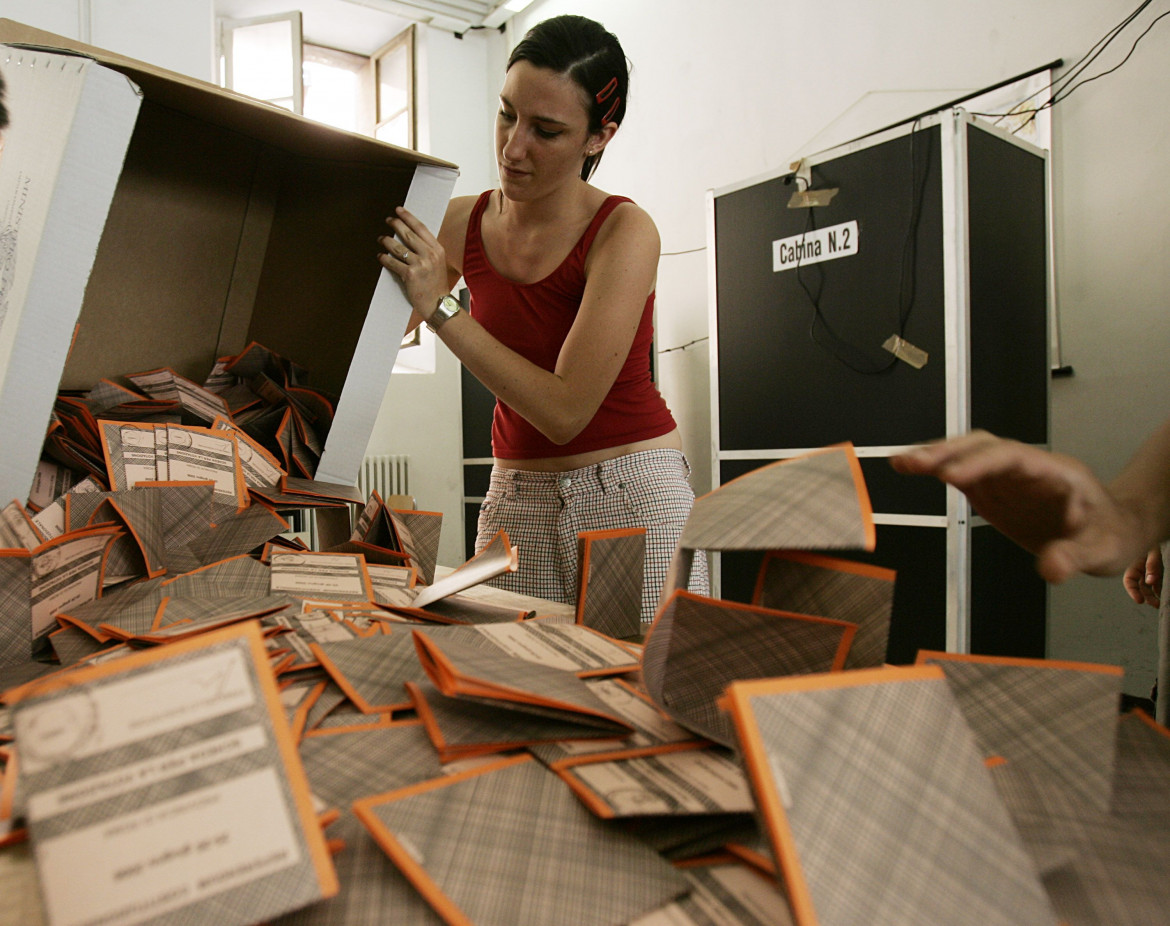Commentary
Think about Sept. 26 to understand what to do on Sept. 25
To counter the disappointment about voting, and the crisis of the left, we would need a project with great impact, an extraordinary commitment of organized subjects and individual personalities expressing a ‘credible’ will for a change of course.

One can only agree with Norma Rangeri’s call to vote, from start to finish: the worst of the worst for democracy is when the will to vote at all has been taken away. This is the drama that lies before us.
It is a dramatic phenomenon that can be seen in so many democratic and left-wing voters, with the widespread belief that voting doesn’t help anything. If this is the situation, to counter the disappointment about voting, and the crisis of the left, we would need a project with great impact, an extraordinary commitment of organized subjects and individual personalities expressing a “credible” will for a change of course.
What can be done today, having reached the finish line? Perhaps a commitment that applies from the day after, when the harsh reality we fear will be a fait accompli? A commitment to do a joint review of the vote together in order to start a new phase? A proper, notarized contract in which the person who signs commits to leave the party/movement they’re part of to take part in a new constituent process?
Among my network of acquaintances, there are some who will vote for the PD, some who will vote for the Green-Italian Left, some who will vote for the Popular Union, and some who will vote for M5S. Let’s not talk about “enthusiasm,” as we hardly know what that means anymore, but the arguments in support of particular positions are often weak from a rational point of view, and sometimes very similar: with the same purpose (to cross the electoral threshold or to be able to play a role), very different choices are made, and confusion reigns supreme.
There is little need now to distinguish between the 25th and the 26th. All of us, whether persuaded voters, likely abstainers and supporters of voting for two different parties between the House and the Senate to encompass contradictory options, will be forced to start a new path. So let us begin to chart it, and perhaps doing so will help us make better choices about what to do on the 25th.
First of all, I would insist on an admission: to recognize that we are inadequate for moving from ideal large goals to operational implementation in terms of resources, timing, ways, for acting in the space between opposition culture and government culture. The concrete proof, for me, is that we have accepted that the NRP, a historic project because of the choices involved, the resources it commits and the conditions it imposes, was approved by Parliament without debate. Government authoritarianism? It was. But also unpreparedness of the parties (including the left) and abdication of responsibility to technocrats (a convenient choice to hide one’s weaknesses).
This vacuum must be filled by building a thread that connects social needs, their translation into goals, the use of resources, and the ability to link resources and goals and thus measure policy. Without sticking to slogans (on that ground populism wins) and without putting ourselves in the hands of technocrats (like Letta, who committed political suicide with the Draghi agenda).
Secondly, we should emphasize, I think, the issue of war and armaments. On support for Ukraine and condemnation of Russia there has been broad, though not full, agreement. But on the search for a diplomatic solution for peace, and on a policy line to reduce military spending, we have been weak. We’ve silenced ourselves in the fear of being framed as pro-Russian. Can we take back our autonomy of judgment and proposals, without aligning ourselves behind the U.S.? Can we reclaim the issue of disarmament and reducing military spending as issues of peace and the future? And in this way, speak to both young people and the Catholic world?
What about the silence on the crisis of globalization and multipolarity in the face of the resurgence of borders and tariffs, trade walls and the new global division into military ideological blocs with the revival of a global NATO?
If we go back to the everyday issues closer to people’s lives, we have suffered under a torrent of malaise, practiced with skill by the double right-wing combo of Salvini and Meloni, able to connect directly to popular needs, to social and economic categories affected by crises. Interweaving old corporatist culture and new populism, these forces have relegated the left to the privileged areas of the inner cities and elites. Meanwhile, the unions were pushed to the front lines to protect workers victimized by the crisis, seeking forms and instruments for defense. But that was how we ended up abandoning the social field of inequality, of new poverty and the distress of the youth.
However these elections go, the union and political forces sensitive to these issues will have to find harmony and synergy in order to influence and change politics. We’ll have a lot to do after the 25th. Let each take a good look at his or her own house. Because we are not all equally responsible for the defeat that is looming. Nor can we get away with apologizing now. We must prepare for a strenuous work of reconstruction, with much, much, humility.
Originally published at https://ilmanifesto.it/pensiamo-al-26-per-capire-che-fare-il-25 on 2022-09-21
